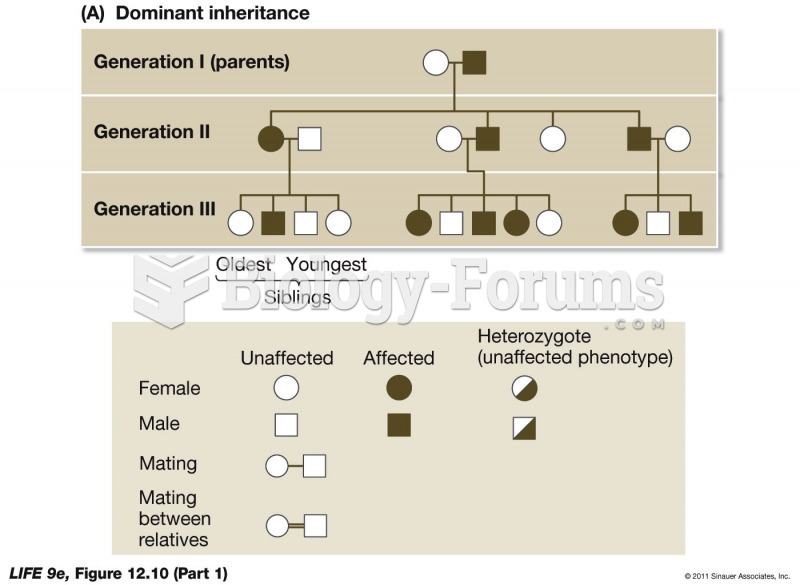|
|
|
The tallest man ever known was Robert Wadlow, an American, who reached the height of 8 feet 11 inches. He died at age 26 years from an infection caused by the immense weight of his body (491 pounds) and the stress on his leg bones and muscles.
About 100 new prescription or over-the-counter drugs come into the U.S. market every year.
Stevens-Johnson syndrome and Toxic Epidermal Necrolysis syndrome are life-threatening reactions that can result in death. Complications include permanent blindness, dry-eye syndrome, lung damage, photophobia, asthma, chronic obstructive pulmonary disease, permanent loss of nail beds, scarring of mucous membranes, arthritis, and chronic fatigue syndrome. Many patients' pores scar shut, causing them to retain heat.
Certain rare plants containing cyanide include apricot pits and a type of potato called cassava. Fortunately, only chronic or massive ingestion of any of these plants can lead to serious poisoning.
Human kidneys will clean about 1 million gallons of blood in an average lifetime.
 DNA analysis of phylogenetic relationships among modern and extinct flightless birds by Cooper and c
DNA analysis of phylogenetic relationships among modern and extinct flightless birds by Cooper and c
 Pulse oximetry with the sensor probe applied securely, flush with skin, making sure that both sensor
Pulse oximetry with the sensor probe applied securely, flush with skin, making sure that both sensor





